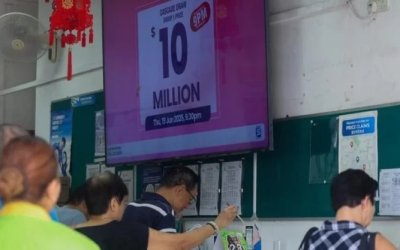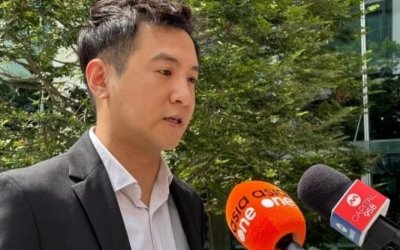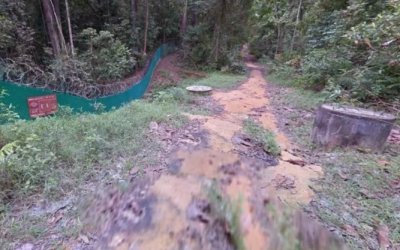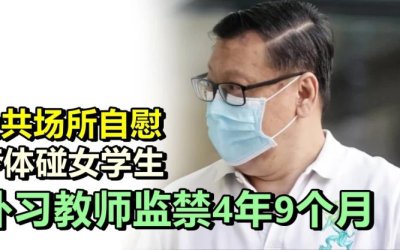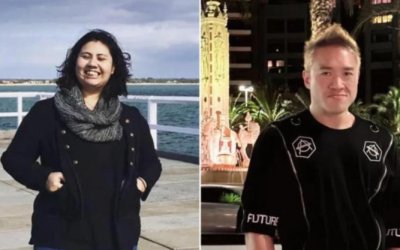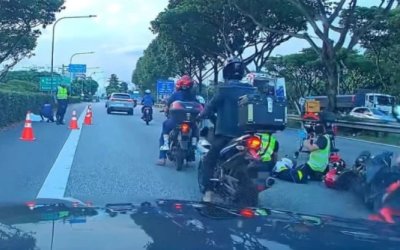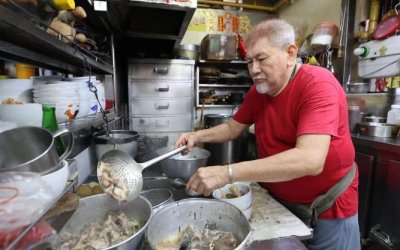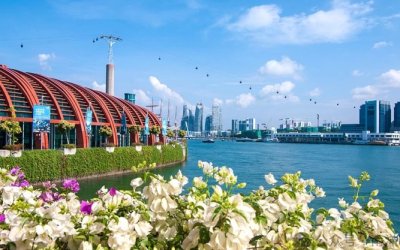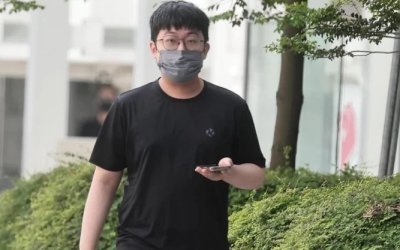Beyond the mandated supervision period, the Singapore Prison Service (SPS) continues to work with Yellow Ribbon Singapore (YRSG) and its community partners, to help the drug abusers. For example, YRSG assists ex-inmates with career coaching and job placement.
These efforts have produced some results. From 1993 to 2021, our two-year recidivism rate for those released from drug rehabilitation centre (DRC) decreased by more than two and a half times, from 73% to 27.7%.
There are many examples of ex-drug abusers who have kicked their habit, leading new lives. For example, Francis How. He dropped out of secondary school, joined a street gang at the age of 12. He was involved in drugs and other crimes, including housebreaking and gambling, to feed his drug addiction. By the age of 32, he had already served close to 11 years behind bars, almost all his adult life. But then, he decided to turn his back on drugs and crime. He is now 50 years old, married with four children. He runs his own shipyard repair business. He has stayed clean for more than 17 years.
The journey to recovery is not easy. It is challenging. It requires many helping hands. We should recognise not just the efforts of the ex-abusers to stay drug-free but also pay tribute to their families who support them in their journey.
Today, we have invited several ex-abusers and their families to join us in the Public Gallery. All in, about 120 of them. They show that it is possible to quit drugs and to live a fulfilling life. I ask Members to join me in recognising them. [Applause.]
While we seek to help abusers, we take a tough approach against drug traffickers. We have zero tolerance for those who destroy the lives of others for money. The death penalty is imposed on persons who traffic specified amounts. For example, a person who traffics 15 grammes of pure heroin, which is enough to feed the addiction of about 180 abusers for a week, will face capital punishment. The evidence shows clearly that the death penalty has been an effective deterrent. In 1990, we introduced the death penalty for trafficking more than 1.2 kilogrammes of opium. In the four years that followed, there was a 66% reduction in the average net weight of opium trafficked.
A 2021 study was conducted in parts of the region. We are evidence-based so I told my Ministry let us do a survey from the regions where many of our drug traffickers come from, to see what the population in those areas think about our penalties and are our penalties sufficient deterrent. Because you deal with the drug situation by dealing with both supply and demand. Demand in Singapore – through public education, through control measures, through active campaigning, explaining the dangers of drugs; supply – by controlling the amount of drugs that come in and through the use of deterrents.
So, we did a statistically, scientifically valid study in the parts from which many of our drug traffickers come from. It showed that 87% of those surveyed, this is nine out of 10, believed that the death penalty deters people from trafficking substantial amounts of drugs into Singapore; 83%, this is eight out of 10, believed that the death penalty is more effective than life imprisonment in deterring drug trafficking; and 86% believed that the death penalty deters serious crimes in Singapore.
The implications are when the drug barons go around trying to recruit people to come into Singapore, people will be very careful. Many would say no and if they do get tempted, they might say, "Well, I will only traffic drugs below a certain threshold amount". So, it makes it much more difficult to traffic substantial amounts into Singapore.
Those who suggest that the death penalty can be replaced by life imprisonment should look at these figures. The deterrent effects of the two penalties are very different.
It is not easy for us – Members, policy-makers, Ministers – to decide to have capital punishment as part of the penalties in law. But the evidence shows that it is necessary to protect our people, prevent the destruction of thousands of families and prevent the loss of thousands of lives. That is why we maintain the death penalty.
Members have to understand – this is nothing short of a war. I say that we are fighting a war and using that analogy, because that is the scale in terms of victims and lost lives. Others in this region have used the analogy of war and that has drawn different sorts of responses. But people know here in Singapore we go on the basis of apprehending the traffickers, dealing with the situations in accordance with laws passed by Parliament and we fight the drug war within that framework.
In the US, every 14 months, more Americans die from abusing fentanyl than from all of America's wars combined since the Second World War, from Korea to Afghanistan, every 14 months. In fact, the life expectancy of male Americans has come down for two reasons. One, the number of shootings, homicides. And second, drugs, opioid abuse. In 2021, the World Health Organization reported 600,000 deaths in 2019 which was attributable to drug abuse. That is more than twice the number of deaths caused by firearms in the same year.
The World Drug Report estimates that in the same year, 31 million years of "healthy" life were lost due to disability and premature deaths as a result of drug use. These are not just statistics. They are lives of fathers, mothers, brothers, sisters, sons and daughters. That is why I use the analogy of war. I am talking about a war against those who profit off the drug trade at the expense of hundreds of thousands of innocent lives.
To put it in the context of fighting a war, let me refer to a point that Bertrand Russell made referencing the Second World War. He pointed out in his 1943 essay titled, "The Future of Pacifism", that "if war is to be prevented, there must be a clearly expressed willingness to go to war for certain ends". In other words, if you want peace, you have to be prepared to fight for it.
I would argue the same applies to the war against drugs. In this war, we will have to decide: do we want to go soft and risk ending up like the countries I have spoken about earlier? Do we want to become a "narco-state", or an "infamous brown town", or a hotbed for drugs and violence?
People may say: no one is asking you to go soft. Impose very tough penalties. Just do not impose the death penalty. And I have said, there is a clear difference between the deterrence effects of the death penalty as opposed to other punishments.
My view, based on the evidence, you remove the death penalty, drug trafficking will go up significantly. There will be more robberies, house breakings and so on, because drug abusers will need money to buy drugs. Evidence shows there will also be more sexual assaults, more homicides and definitely many more people will die in Singapore. That is why we take a strict approach, and our strict approach has saved thousands of lives.
In the 1990s, CNB arrested about 6,000 drug abusers per year. That number has now come down by almost half. CNB now arrests about 3,000 drug abusers per year. All things being equal, the number of drug abusers in Singapore should have gone up in the last 30 years. The supply of drugs in the region has exploded. Our purchasing power has increased significantly. That figure of 6,000 should be two, three times more because more people should be consuming drugs. But instead, the number has gone down.

